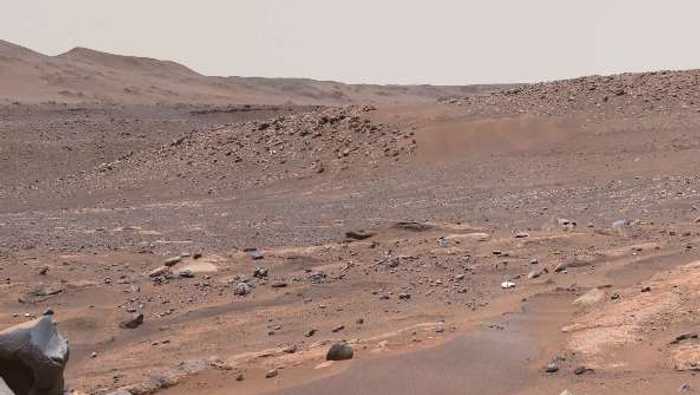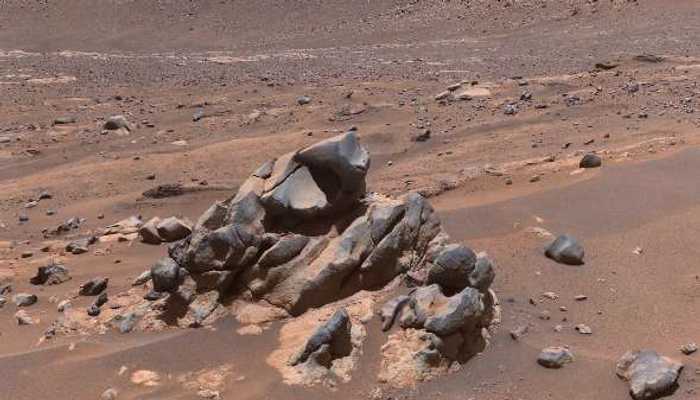Published 19:23 IST, December 28th 2023
NASA chose the Jezero Crater because it could have hidden evidence of microbial life that may have existed in the waters on ancient Mars.
Advertisement
NASA has shared a stunning video from Mars featuring a vast area of an ancient river delta. According to the Jet Propulsion Laboratory (JPL), the panorama video made of 2.38 billion pixels has been produced by stitching together 993 individual images.

All the pictures were taken using the Perseverance rover which is exploring the Jezero crater since its landing on February 18, 2021.
Advertisement
Let’s take a tour of Mars with @NASAPersevere 👀
Project scientist Ken Farley walks us through this detailed 360-degree, 2.38-billion pixel panorama made from 993 individual images. pic.twitter.com/nBq8rLwqZB— NASA JPL (@NASAJPL)
"The flat, light coloured rocks were deposited on the banks of a river flowing slowly across the landscape. The boulders in the distance were deposited later in what was likely a raging torrent," the video shared by JPL narrates.
Scientists also came across what is believed to be a remnant of a lava flow and a key to unlocking Mars' watery past.
Advertisement

NASA says that the sample of suspected lava rocks could help determine when and for how long water flowed into the Jezero crater. This crater is confirmed to have hosted an ancient lake and river system a few billion years ago.
The Perseverance rover team also spotted light coloured rocks which, according to scientists, may have interacted with hot water in an environment fit for the hunt for evidence of past life. The Jezero Crater was chosen as a suitable site for exploration because it could have hidden evidence of microbial life that may have existed in the waters.
Advertisement
Ever since its landing, Perseverance has collected a dozen rock samples which will soon be sent to Earth for investigation. In collaboration with the European Space Agency (ESA), NASA is developing the Mars Sample Return Mission to fetch the samples early next decade. This plan, however, has several road blocks ahead of it including an “unrealistic” budget and launch timeline i.e. 2027 or 2028.
Advertisement
Advertisement
19:23 IST, December 28th 2023